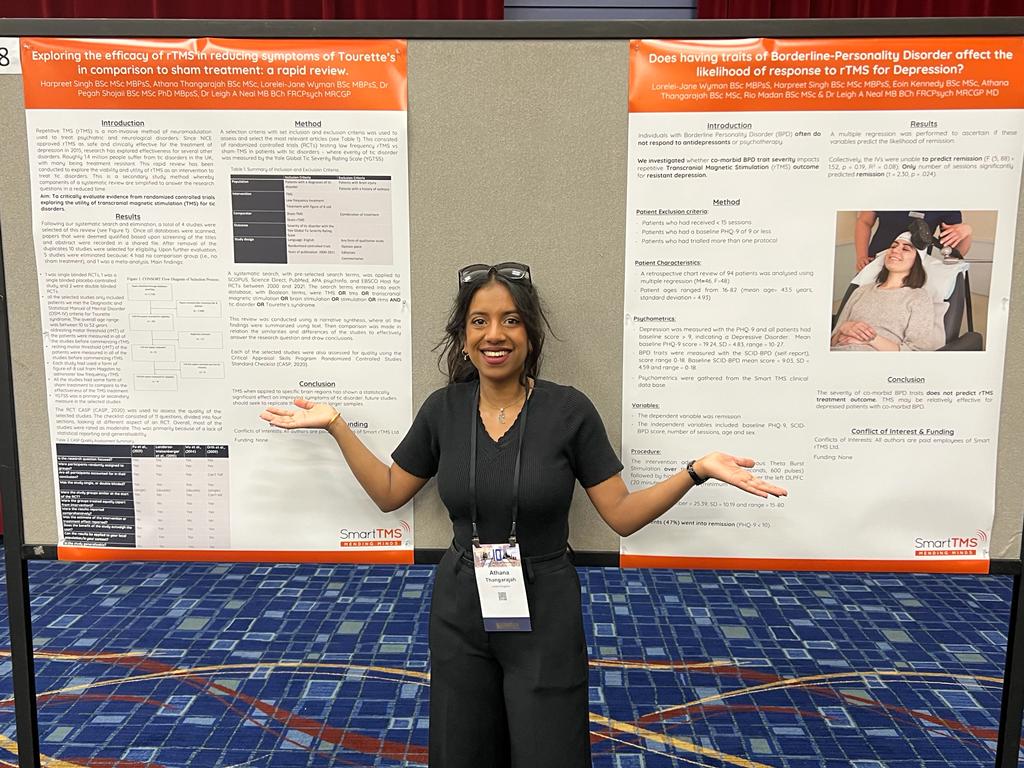September 26, 2022 - Smart TMS

September 26, 2022 - Smart TMS

Lead Practitioner Athana, attended at the 10th Annual Meeting of the Clinical Transcranial Magnetic Stimulation (TMS) Society in Chicago. Her purpose there was to participate in the poster presentation, where she outlined some interesting research carried out by the Smart TMS practitioner team.
One of the studies accepted by the CTMS society was a study comparing the clinical outcomes of two different TMS protocols in patients treated for depression. In recent years, a new type of stimulation has been developed, known as prolonged intermittent Theta Burst stimulation (piTBS). This protocol stimulates the neurons more efficiently than the traditional 10 Hz protocol. It therefore takes less time to deliver.
We carried out a retrospective review of 129 patients. These patients had either the 10Hz or piTBS depression protocols. The study aimed to compare remission rates between the two groups.
Ultimately, there was no significant difference in clinical outcomes between the two protocols.
The study suggests that the new piTBS protocol is just as effective at alleviating symptoms of depression as the traditional 10Hz protocol. However, this also suggests that piTBS does not improve outcomes compared to 10Hz either. The poster generated much interest at the conference and Athana was delighted to explain our research to the delegates present.
Author, Eoin,
Smart TMS Dublin Practitioner
Other Articles
Aug. 18, 2019
Dec. 29, 2021
Sep. 4, 2019
Copyright © Smart rTMS Ltd. 2025 - Company number 09921994